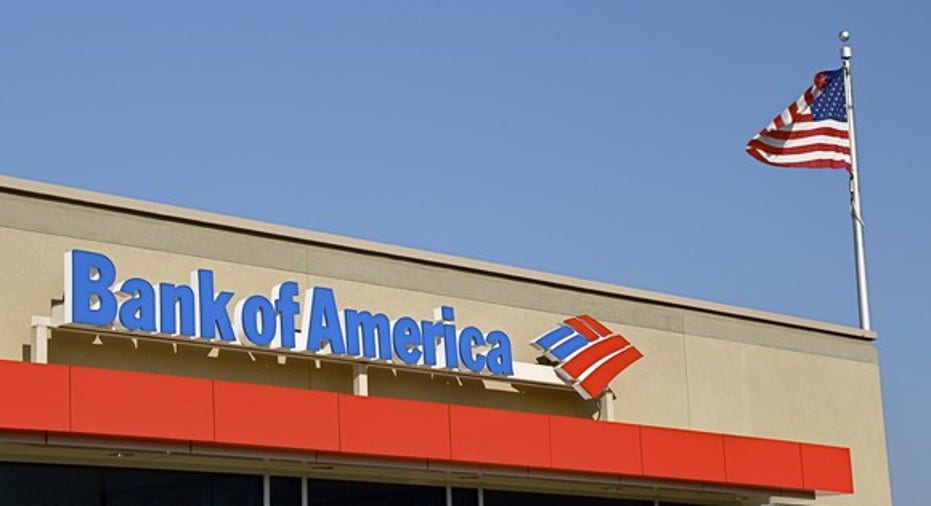The Scariest Thing About Bank of Americas Stock

Data source: iStock/Thinkstock.
I think Bank of America's (NYSE: BAC) stock is a pretty good deal right now, but there are substantial risks that come with owning shares of the North Carolina-based bank. The biggest risk of all is the stringent regulatory regime that's only bound to get worse in the wake of Wells Fargo's massive fraud.
A history of regulation
Banks have always been tightly regulated. Four decades ago, they weren't even allowed to have multiple branches or to operate in multiple states. And for 60 years after the Great Depression, the Glass-Steagall Act prohibited banks from running both commercial and investment banking businesses, as it was believed that the combination contributed to the banking crises of the 1930s.
These rules began to ease up in the 1970s, culminating in a series of laws passed in the 1990s that eliminated most of the restrictions. It was this deregulation that enabled Bank of America to grow into what it is today -- a $2.2 trillion bank with branches stretched across the country.
Unfortunately for bankers, however, the financial crisis in 2008 put an end to this trend. Thanks to the role of banks in both the housing bubble and its collapse, Congress enacted the Dodd-Frank Act in 2010. The legislation marks a swing of the pendulum back in the direction of heavy regulation.
Disadvantages of being big
The new rules fall especially hard on the country's eight global systemically important banks. These include the four largest commercial banks (JPMorgan Chase, Bank of America, Wells Fargo, and Citigroup), two major custodial banks (The Bank of New York Mellon and State Street), and the two biggest stand-alone investment banks (Goldman Sachs and Morgan Stanley).
These eight banks must hold more capital than their peers, which necessarily reduces their leverage and thus their profitability. They must also keep their balance sheets more liquid than their smaller, simpler peers in the regional banking space. This depresses the yield on a bank's asset portfolio and thus weighs on a bank's top and bottom lines.
Large banks must also ask for the Federal Reserve's permission to increase their dividends or boost their share repurchase authorizations. This is part of the annual stress tests mandated by Dodd Frank. And while most banks tend to have their capital proposals approved, Bank of America has been rebuked by the central bank on multiple occasions over the past six years.
Breaking up the big banks?
The most significant change of all, however, has been the animosity that politicians and regulators have directed toward the banks in the wake of the crisis. On Thursday of this week, during the second round of Congressional hearings into the Wells Fargo scandal, multiple members of the House of Representatives argued that the biggest banks should be broken up.
And they weren't alone. In the months leading up to the hearing, two of the Federal Reserve's governors hinted that they feel the same way. "I think it likely that firms are going to have to change in some cases their size, in some cases their business model, and in some cases their organization," Daniel Tarullo told The Wall Street Journal in May.
Tarullo's colleague, Jerome Powell, echoed this sentiment. "I have not reached any conclusion that a particular bank needs to be broken up or anything like that," Powell said at a conference around the same time. The point is instead to "raise capital requirements to the point at which it becomes a question that banks have to ask themselves."
Them are fighting words. And they represent the scariest thing about Bank of America's stock. If it's broken up by regulators, there's no telling whether shareholders will benefit or suffer from the move.
A secret billion-dollar stock opportunity The world's biggest tech company forgot to show you something, but a few Wall Street analysts and the Fool didn't miss a beat: There's a small company that's powering their brand-new gadgets and the coming revolution in technology. And we think its stock price has nearly unlimited room to run for early in-the-know investors! To be one of them, just click here.
John Maxfield owns shares of Bank of America, Goldman Sachs, and Wells Fargo. The Motley Fool owns shares of and recommends Wells Fargo. The Motley Fool has the following options: short October 2016 $50 calls on Wells Fargo. The Motley Fool recommends Bank of America. Try any of our Foolish newsletter services free for 30 days. We Fools may not all hold the same opinions, but we all believe that considering a diverse range of insights makes us better investors. The Motley Fool has a disclosure policy.



















